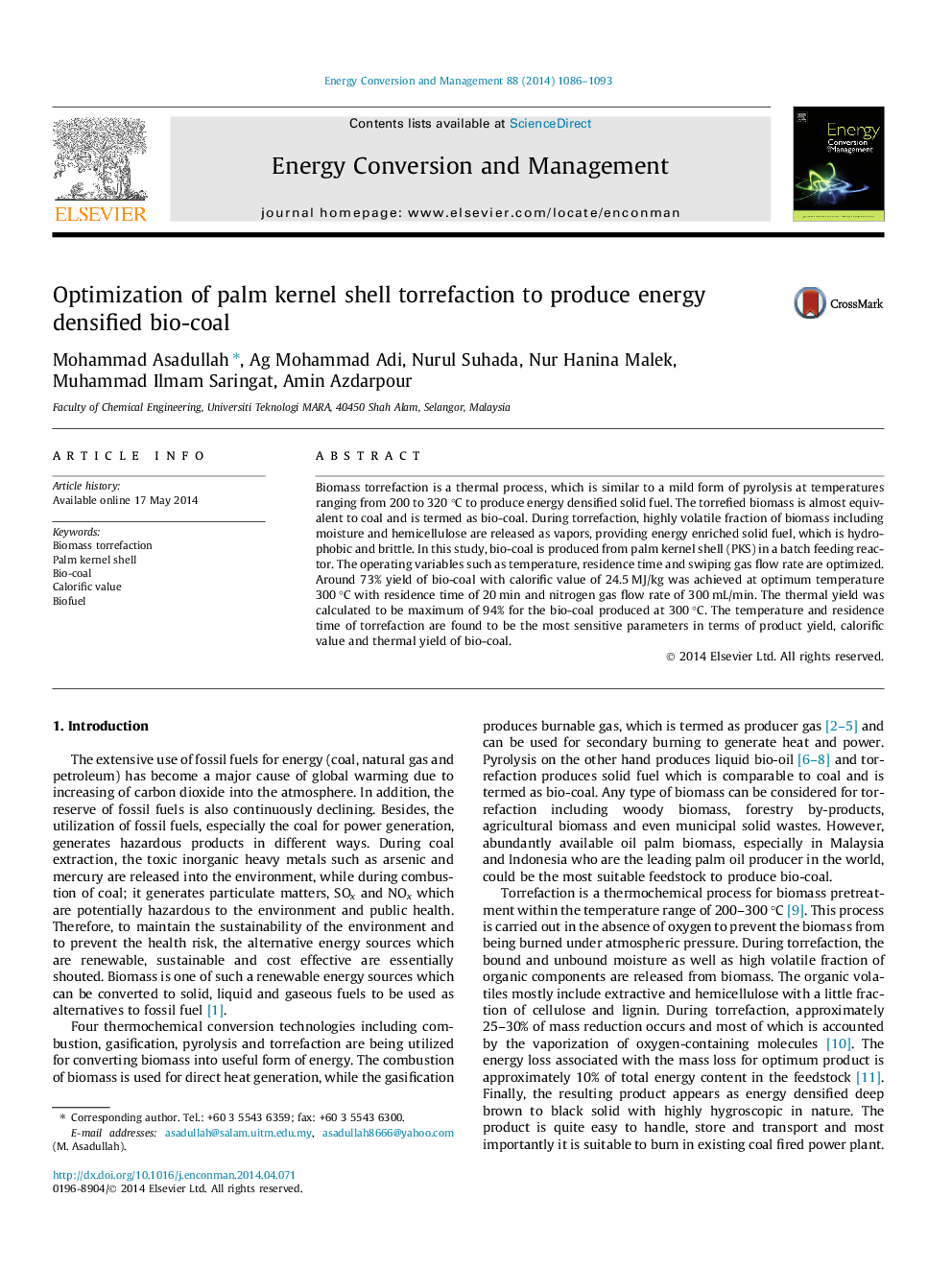| کد مقاله | کد نشریه | سال انتشار | مقاله انگلیسی | نسخه تمام متن |
|---|---|---|---|---|
| 765598 | 1462874 | 2014 | 8 صفحه PDF | دانلود رایگان |
• Around 70% of bio-coal yield was achieved from PKS torrefaction at 300 °C.
• The higher heating value of optimized bio-coal was 24.5 MJ/kg.
• Around 94% of thermal yield was achieved with 70% mass yield.
• The grindability of optimized bio-coal was comparable with coal.
Biomass torrefaction is a thermal process, which is similar to a mild form of pyrolysis at temperatures ranging from 200 to 320 °C to produce energy densified solid fuel. The torrefied biomass is almost equivalent to coal and is termed as bio-coal. During torrefaction, highly volatile fraction of biomass including moisture and hemicellulose are released as vapors, providing energy enriched solid fuel, which is hydrophobic and brittle. In this study, bio-coal is produced from palm kernel shell (PKS) in a batch feeding reactor. The operating variables such as temperature, residence time and swiping gas flow rate are optimized. Around 73% yield of bio-coal with calorific value of 24.5 MJ/kg was achieved at optimum temperature 300 °C with residence time of 20 min and nitrogen gas flow rate of 300 mL/min. The thermal yield was calculated to be maximum of 94% for the bio-coal produced at 300 °C. The temperature and residence time of torrefaction are found to be the most sensitive parameters in terms of product yield, calorific value and thermal yield of bio-coal.
Journal: Energy Conversion and Management - Volume 88, December 2014, Pages 1086–1093
